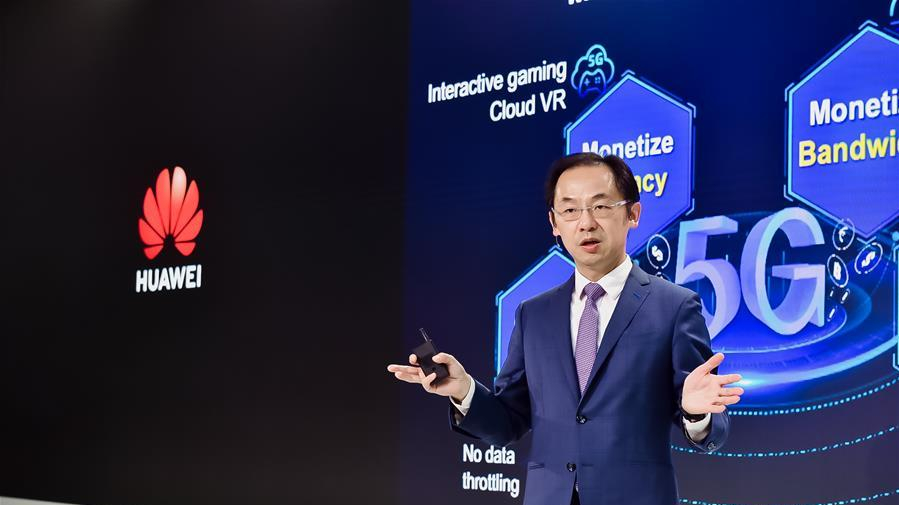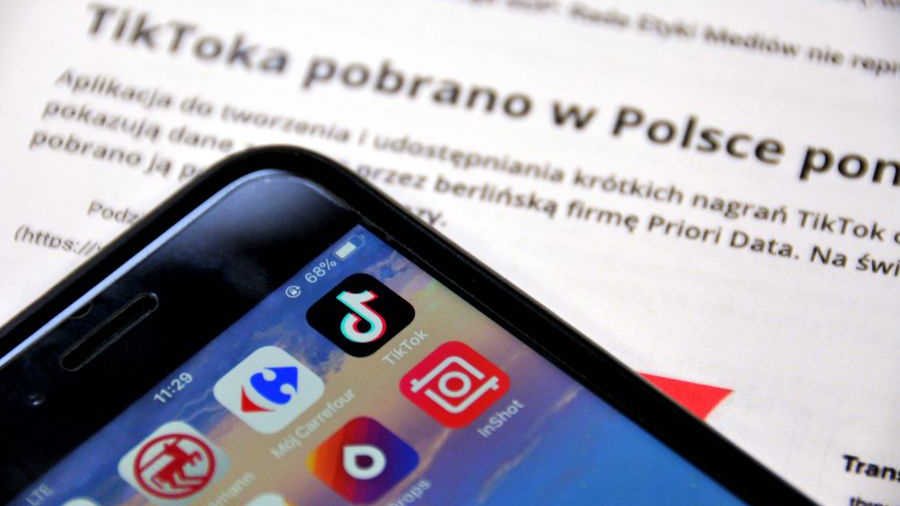
Ryan Ding, Executive Director of the Board and President of Huawei's Carrier BG (business group), speaks at a Huawei product and solution launch event in London, U.K., February 20, 2020. /Xinhua
Ryan Ding, Executive Director of the Board and President of Huawei's Carrier BG (business group), speaks at a Huawei product and solution launch event in London, U.K., February 20, 2020. /Xinhua
Editor's note: Huang Yongfu is an economic affairs commentator. After his Ph.D., he started working at the University of Cambridge and then moved on to the UN. He is an author of many papers and books in the field of global development. His current interests lie in global development and Sino-U.S. ties, especially trade, financial and technological issues. The article reflects the author's opinions and not necessarily the views of CGTN.
To reduce China's technological lead in areas such as telecommunications, the Trump administration has long charged the theft of intellectual property and trade secrets by Chinese tech firms and individuals. Recently, criticism has cranked up and will continue going on.
On February 13, the U.S. unsealed its latest indictment in federal court in Brooklyn, New York City, suing Huawei Technologies Co. and two of its U.S. subsidiaries for conspiring to steal trade secrets, source code and wireless technology manuals from six U.S. technology companies, violating a racketeering law typically used to combat organized crime. On February 10, in a federal court in Atlanta the U.S. government charged four Chinese nationals working for the People's Liberation Army to use cyber theft and other means to pilfer data reams and trade secrets from a credit-reporting agency.
Huawei denied the new indictment, calling it "unfounded and unfair," attempting "to irrevocably damage Huawei's reputation and its business for reasons related to competition rather than law enforcement."
As far as economic espionage is concerned, many U.S. firms systematically extract leading technologies domestically and globally, using both legal and nefarious means, to enhance their unfair competitive advantage. It is not news that the U.S. state-directed hacking and spying campaign through its sprawling espionage agencies such as FBI took place globally and posed considerable threats to relevant countries, including its allies.
To just name a few, below are some major incidents and allegations publicly disclosed about the U.S.' top tech giants the Trump administration should look into:
Facebook copies ByteDance's tech, according to the Independent
On November 14, 2019, U.K. newspaper the Independent published an article entitled "Instagram's new reels feature is almost an exact copy of Tiktok." It discussed an imitation of a TikTok feature launched by Facebook, which owns Instagram, saying that, "Instagram has launched a new tool called Reels that borrows some of the most popular features of social media upstart TikTok."
It further explains the functionality of "Reels" as, "Reels allows users to create music videos for up to 15 seconds – the same length of time allowed on TikTok. Much like the 'Duet' feature in TikTok, Reels also allows users to take audio from other users to use in their own videos."

Photo taken on February 13, 2019 shows the Tiktok app icon (upper right corner) on a smartphone screen. /Xinhua
Photo taken on February 13, 2019 shows the Tiktok app icon (upper right corner) on a smartphone screen. /Xinhua
The article clearly points out that Facebook is actually stealing some of the TikTok's features, by using "almost an exact copy of Tiktok."
Supported by its Beijing-based parent company ByteDance, currently the world's most valuable startup, Tiktok has spent heavily on ads on Snapchat and Instagram. It has emerged as a runaway success and upstart challenging the U.S.' dominance in the social media field, and is among the most downloaded app in the Apple Store in recent years.
The fast-growing of Tiktok ratcheted up competition pressure with its U.S. rivals such as Facebook, which cause the latest development, "to compete with its hugely popular Chinese rival that has gained more than 500 million users around the world since it launched in 2016."
Luxe speaker brand Sonos takes on Google and Amazon
On January 9, 2020, the Wall Street Journal published an article entitled "Sonos Takes On Tech Giants", on Sonos Inc., a maker of high-end wireless speakers that owns more than 750 patents in the U.S. related to audio technology.
The article says that Sonos sued its once-close partner Google in federal court on January 7 for stealing its technology and infringing on its patents. It also confirms that the Chief Executive of Sonos, Patrick Spence, has been in Congress to testify against tech giants Google and Amazon for infringing on his company's patents.
The lawsuit alleges,"Google has been blatantly and knowingly copying our patented technology in creating its audio products". The suit claims that Google gained knowledge, as early as 2013, of Sonos' patented wireless multi-room technology, and started infringing on its patent in 2015 when it launched its first wireless audio product, Chromecast Audio, and continued its infringement on other patents as more speaker products were launched.
Sonos first raised infringement claims with Google in August 2016, but Google has failed to respond adequately, and instead is creating more products using its technology.
Verizon allegedly used Huawei's patents without a license
According to the statement published by Huawei on February 6, 2020, with title of "Huawei sued Verizon for use of patented technology in the U.S.", Huawei filed in two federal district courts in Texas to sue U.S. carrier Verizon Communications Inc. for allegedly using 12 of its patented telecommunications technologies without a license.
Huawei is demanding financial compensation from Verizon. The patented telecom technologies involved are those for optical transmission and digital communications.
The two sides met numerous times in the U.S. to discuss the dispute without a resolution. Verizon isn't a customer of Huawei, but has been using Huawei's technology without a license in several applications, including in its routers and switches and in enterprise services. Some technologies were allegedly used by Verizon and branded by Huawei's rivals such as Cisco Systems Inc.
A better path ahead
Security hawks in the Trump administration have long advocated that China is the "enemy" whose control of 5G networks through Huawei would imperil American national security and put its economy at risk.
The government is fighting to convince allies to lock Huawei out of their next generation mobile networks, to reduce China's technological lead in telecommunications.
This perception and policy must be a major mistake by the Trump administration and will eventually be detrimental to the U.S. economic, political and security interests. In fact China could be America's good partner and Huawei could greatly benefit the economy of the West.
It would work better for the U.S. which directed similar causes successfully after World War II, if it could play a key role in developing a positive, active, comprehensive and consistent strategy to govern novel tech companies in the world that belong to a global web of innovation.
It is imperative for the global community to create a fair playing field for competition and international norms and standards to create new technologies, which apply to all countries equally.
(If you want to contribute and have specific expertise, please contact us at opinions@cgtn.com)